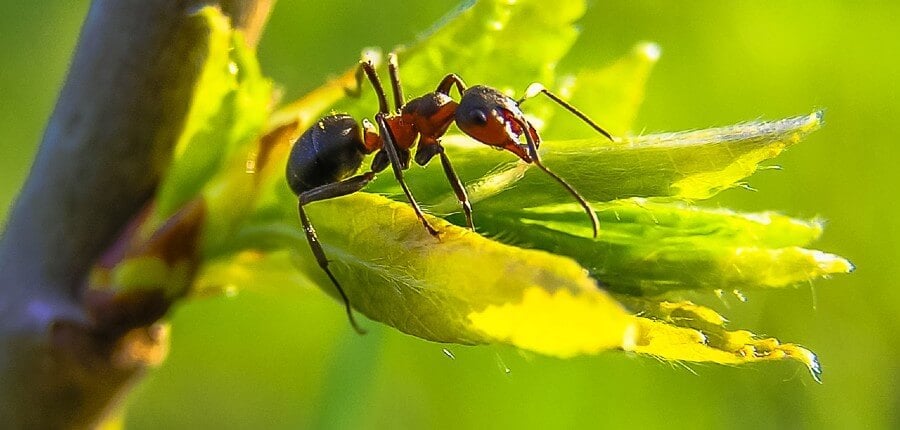Specialist Termite Control Services: Secure Your Home from Termite Damages
Wiki Article
Ecological Impact of Bug Control: Harmonizing Performance With Sustainability
The environmental impact of pest control is a crucial issue that needs a delicate equilibrium in between accomplishing effectiveness in making sure and taking care of pests sustainability of our ecosystems. From the usage of hazardous chemicals that leak right into our soil and water to the unintended repercussions on non-target species, the consequences of standard insect control practices are significant.Harmful Chemicals in Bug Control
The usage of harmful chemicals in parasite control poses significant environmental and health risks that necessitate mindful consideration and mitigation methods. Herbicides, pesticides, and pesticides are generally utilized to get rid of insects, however their widespread application can cause unexpected consequences. These chemicals can infect soil, water sources, and the air, affecting not only the targeted insects however also valuable insects, wildlife, and people.
To attend to these dangers, integrated parasite management (IPM) techniques are being promoted as an extra sustainable option. IPM involves a combination of approaches such as biological control, environment adjustment, and the targeted use of chemicals as a last resort (ant control bessemer city nc). By taking on an alternative method to pest control, we can reduce the ecological and health impacts related to unsafe chemicals while efficiently taking care of pest populations
Influence On Non-Target Types
Considering the unexpected repercussions of pest control approaches, the effect on non-target varieties is a vital element that needs extensive examination. While pest control actions aim to target specific bugs, other microorganisms in the environment might be unintentionally affected. Non-target types, including beneficial bugs, birds, animals, and even plants, can suffer straight or indirect injury from pesticide applications or biological control methods.Chemicals can have sub-lethal or lethal effects on non-target types. Insecticides made to deal with a particular bug pest might hurt pollinators like bees or all-natural killers such as ladybugs. Furthermore, chemical deposits can gather in the setting, influencing non-target organisms in time. Biological control representatives, if not species-specific, can position threats to unintended targets, interrupting the eco-friendly balance.
To alleviate the effect on non-target types, incorporated bug monitoring (IPM) strategies that emphasize an alternative technique to pest control are advised. These approaches prioritize using ecologically pleasant practices, decreasing harm to useful microorganisms while properly managing pest populaces. Carrying out complete threat analyses and checking the outcomes of insect control initiatives are important steps in protecting non-target species and advertising overall ecological community health and wellness.
Soil and Water Contamination
Unintentional ecological consequences of pest control approaches prolong beyond affecting non-target types, with considerable ramifications for dirt and water contamination - termite control. Chemicals, herbicides, and chemical plant foods used in bug control can leach right into the dirt and infect groundwater, posturing a threat to both aquatic and terrestrial ecological communities.Water contamination is one more critical issue associated with insect control methods. To alleviate soil and water contamination from pest control activities, incorporated bug management methods that focus on sustainability and lessen chemical inputs are important.
Air Pollution From Pesticide Use
Exposure to airborne chemicals during farming applications positions a considerable problem for air pollution control steps. In addition, pesticide drift, where chemicals are brought by the wind to unintended areas, can lead to the contamination of close-by environments and water bodies.
Strategies for Sustainable Insect Control
In the world of agricultural methods, implementing lasting bug control techniques is paramount for maintaining eco-friendly balance and guarding crop returns. Sustainable parasite control emphasizes using eco-friendly approaches to manage insect populaces successfully while minimizing harm to non-target organisms and ecosystems. Integrated Pest Management (IPM) is a widely adopted technique that combines organic, cultural, physical, and chemical control approaches to achieve long-lasting insect administration services.Plant rotation and diversification are likewise efficient methods to disrupt pest life cycles and produce much less desirable problems for bugs to prosper. Eventually, by integrating these lasting bug control methods, farmers can attain an equilibrium between pest administration efficiency and ecological stewardship.
Conclusion
In final thought, the ecological effect of insect control approaches must be carefully considered to balance efficiency with sustainability. Harmful chemicals used in insect control can bring about soil and water contamination, air pollution, and damage non-target varieties - termite control. It is essential to implement lasting bug control strategies to reduce these negative results on the setting and advertise a healthier community for future generationsBy embracing an all natural technique to pest control, we can minimize the ecological and wellness influences linked with ant control forest nc hazardous chemicals while successfully handling pest populaces.

To reduce the air contamination caused by chemical use, it is essential to embrace incorporated insect monitoring techniques that focus on the use of non-chemical bug control methods, such as crop turning, natural killers, and immune plant selections. Lasting pest control emphasizes the usage of ecologically friendly methods to manage insect populaces properly while lessening harm to non-target organisms and ecosystems. Integrated Insect Management (IPM) is a widely embraced method that combines biological, cultural, physical, and chemical control techniques to attain lasting pest management options.
Report this wiki page